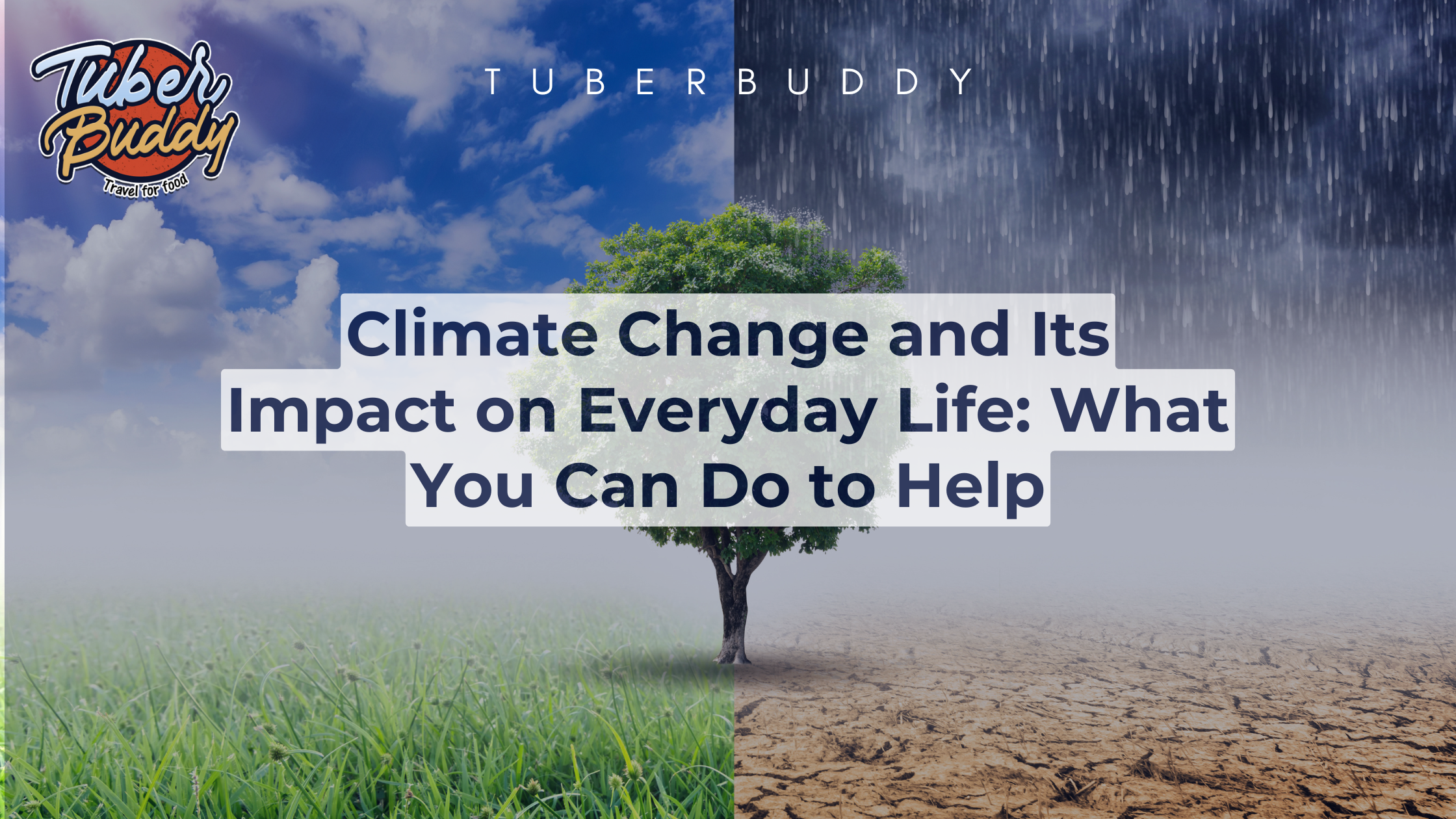Climate Change and Its Impact on Everyday Life: What You Can Do to Help

Climate change is no longer a distant threat—it’s here, affecting our everyday lives in more ways than we realize. From rising temperatures and unpredictable weather patterns to its impact on food and water supplies, the effects of climate change are becoming increasingly evident. While governments and organizations are working toward solutions, individual actions can make a significant difference.
How Climate Change Affects Everyday Life
Rising Temperatures
- Heatwaves are becoming more frequent and intense, making summers unbearable for many. This has a direct impact on health, with heat-related illnesses like dehydration and heatstroke becoming common.
Unpredictable Weather Patterns
- Climate change has led to erratic rainfall, causing floods in some areas and droughts in others. These extreme weather conditions disrupt agriculture, affect water availability, and increase the cost of living.
Impact on Agriculture and Food Security
- Crops are highly sensitive to temperature changes. Unfavorable conditions reduce yields, leading to higher food prices. Additionally, certain foods may become scarcer, affecting diets and nutrition.
Health Risks
- Rising temperatures and pollution levels increase the prevalence of respiratory issues, allergies, and diseases like malaria and dengue, which thrive in warmer climates.
Threats to Coastal Areas
- Rising sea levels pose a significant risk to coastal communities, leading to displacement and loss of livelihoods.
Economic Strain
- Extreme weather events like cyclones and wildfires damage infrastructure, leading to increased costs for repairs and insurance. Individuals feel this impact through higher taxes, bills, and disrupted services.
What You Can Do to Help
While climate change is a global issue, individual actions collectively have the power to bring about change. Here are some simple yet impactful steps you can take:
Reduce, Reuse, Recycle
- Cut down on waste by adopting the 3Rs. Recycle plastics, reuse items whenever possible, and avoid single-use products like straws, cups, and bags.
Conserve Energy
- Switch to energy-efficient appliances and use LED bulbs. Turn off lights, fans, and electronics when not in use. Better yet, consider investing in renewable energy sources like solar panels for your home.
Opt for Sustainable Transportation
- Walk, bike, or use public transport whenever possible. If you drive, carpool with others or consider switching to electric or hybrid vehicles to reduce your carbon footprint.
Adopt a Plant-Based Diet
- The livestock industry is a major contributor to greenhouse gas emissions. Reducing meat consumption and incorporating more plant-based meals can significantly lower your environmental impact.
Support Local and Sustainable Products
- Choose locally grown produce and goods. This reduces the carbon footprint associated with transportation and supports local economies.
Plant Trees and Protect Green Spaces
- Trees absorb carbon dioxide and provide shade, reducing urban heat. Participate in tree-planting drives or simply care for plants in your home and neighborhood.
Educate Yourself and Others
- Stay informed about climate change and share your knowledge with friends and family. Small conversations can inspire collective action.
Advocate for Policy Change
- Support policies and initiatives that prioritize renewable energy, conservation, and sustainable practices. Participate in community efforts and voice your concerns to local representatives.
The Power of Collective Action
While individual actions matter, collective efforts amplify their impact. Communities can work together to implement larger-scale changes like creating community gardens, reducing reliance on fossil fuels, and organizing clean-up drives. Schools, workplaces, and local governments can also play a crucial role in raising awareness and promoting eco-friendly practices.
Hope for a Sustainable Future
The effects of climate change are undeniable, but they are not irreversible. By making conscious choices in our daily lives, we can contribute to a more sustainable future. From conserving resources to influencing societal norms, every step counts.
Remember, addressing climate change isn’t just about saving the planet—it’s about protecting our homes, health, and future generations. Small actions, when multiplied across billions of people, can lead to monumental change.
